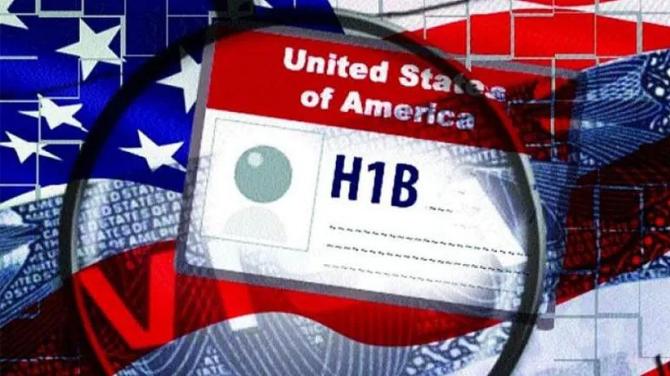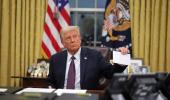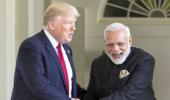'Transactionalism is in his DNA.'

"Over the past 25 years, to borrow a phrase popularised by my colleague Ashley J Tellis, the United States has pursued a policy of 'strategic altruism' regarding India.
"Now, in an interesting twist, India might have to engage in a bit of strategic altruism of its own," says Dr Milan Vaishnav, senior fellow and director, South Asia Program, Carnegie Endowment for International Peace, the global think tank.
Dr Vaishnav's focus of research is the political economy of India and he hosts The Grand Tamasha, a weekly podcast on news and politics in India.
In the concluding part of his interview to Rediff.com's Archana Masih he discusses Modi's visit to America and the challenges for India in the Trump II era.
- Part 1 of the Interview: 'Trump Deep Down Admires Modi'
What will be the challenges for India in the first part of the Trump II era?
I think the short-term challenge is simple: Give the new President 'quick wins' to try and build goodwill and allow him to put a victory on the board.
And, in this regard, I think the Indian government has moved quickly with repatriation flights for irregular migrants and dangling the possibility of unilateral trade concessions which would increase market access for American exports.
The longer-term challenges are more daunting.
At the top of my list would be trade, immigration, and technology.
On trade, Trump will again be focused on India's bilateral trade surplus with the United States and will push Modi to take steps to narrow that gap.
But even more challenging is dealing with the indirect effects of Trump's trade tantrum -- and navigating market uncertainty and volatility.
On immigration, the kerfuffle over H1-B visas has died down for now, but you can bet it will be back soon.
The faction within the administration advocating for high-skilled immigration (the so-called 'tech bros') won round one of the battle, but this will be part of a much longer war between the technologists and the MAGA faithful.
On technology specifically, India has looked to the United States for capital and transfer of know-how.
The Biden administration made the latter a key priority of its engagement with India under the banner of the initiative for critical and emerging technology (iCET). But it remains to be seen whether the resurgence of techno-nationalism in America will have a dampening effect on US-India collaboration in this domain.
After calling India 'Tariff King', Trump has been less belligerent with India on tariffs compared to China, Mexico and Canada.
China is a strategic competitor of the United States and America's bilateral trade deficit with it is much bigger than with India.
Despite Trump's private feelings on Xi, China is still America's foremost strategic competitor. Canada and Mexico are easy targets because of shared borders and Trump's fixation with illegal immigration.
India is a concern, both on trade and migration, but it not a first-order preoccupation. Again, I think this is where the Trump-Modi rapport also works in India's favour.
There's a positive, shared history that the two can draw on.

Meanwhile, India has also reduced import duties since Trump's victory. What would be a good trade bargain for both countries in this regard?
How best can America and India handle this situation, especially since they were unsuccessful in striking a trade deal during Trump's last visit to India?
I think we should keep our expectations in check. Trump wants to make any Indian concessions sound like the free trade deal of the century. But that's bluster for domestic consumption.
In reality, I think a good bargain is a reduction in import tariffs and commitment to 'buy America' on the Indian side in exchange for a commitment not to levy new tariffs that narrowly target India and to reconsider the administration's opposition to a resumption of the Generalized System of Preferences (GSP) regime, which offers US partner countries preferential trade access.

Will this be a purely 'give and take' relationship with India for Trump in his second term?
Everything is give-and-take with Trump.
Transactionalism is in his DNA. This will not change. But as Pratap Bhanu Mehta recently wrote, Trump is not merely seeking new deals, he also seeks American dominance or at least the appearance of American dominance.
Over the past 25 years, to borrow a phrase popularised by my colleague Ashley J Tellis, the United States has pursued a policy of 'strategic altruism' regarding India.
Now, in an interesting twist, India might have to engage in a bit of strategic altruism of its own.
Feature Presentation: Aslam Hunani/Rediff.com











